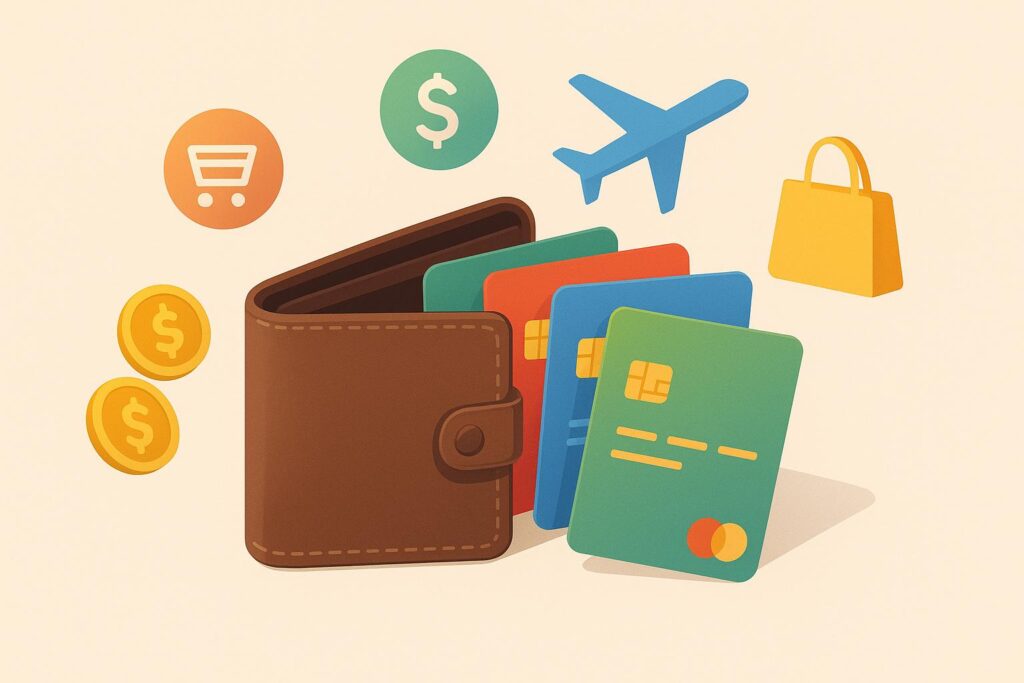Cashback, points or miles are three of the most common incentives offered by credit cards, each appealing to different consumer habits. Choosing the right program can make your purchases more rewarding and bring meaningful savings or perks. However, the best choice depends on how you usually spend, travel, and redeem rewards.
The debate isn’t about which program is universally better but rather which one matches your personal profile. While frequent travelers may benefit from airline programs, those who prefer simplicity might find cash rebates more convenient. For others, points that can be redeemed across multiple categories strike the perfect balance.
Finding the right reward strategy

When exploring different card programs, the first step is understanding your lifestyle. If you prefer tangible returns, cashback may feel more satisfying since the benefit appears directly as a discount on your bill. According to NerdWallet, many cards now offer 1.5% to 2% on most purchases, which can quickly add up for households with high monthly expenses.
On the other hand, points-based systems often allow greater flexibility. These programs let you exchange accumulated credits for shopping, dining, travel, or even gift cards. If you enjoy experimenting with different redemption categories, points can be rewarding. However, the value per point can vary widely, so reviewing the conversion rates and restrictions is crucial before deciding.
Considering travel perks
Miles are particularly attractive to travelers, as they provide access to discounted or even free flights. For frequent flyers, partnering with airlines through a credit card can lead to free upgrades, priority boarding, and lounge access. Platforms like The Points Guy provide detailed guidance on maximizing these perks, ensuring that loyal travelers get the most out of their cards.
Yet, miles come with limitations. Redemption rules may vary depending on the airline, blackout dates can limit flexibility, and the real value of miles depends on how they are redeemed. If you travel only occasionally, investing in a mileage-focused card may not deliver the expected return compared to simpler alternatives.
Balancing costs and benefits
It’s important to evaluate potential fees before choosing a reward program. Many premium cards that offer generous miles or higher point multipliers also come with annual costs. If you’re not maximizing those perks, the fee may outweigh the benefit. Cashback cards often stand out here, as they frequently have lower or even zero annual charges, making them accessible to a broader audience.
Analyzing your monthly expenses can help clarify the math. For example, if you spend heavily on groceries and gas, a cashback program with boosted categories could generate more value than a mileage card with an expensive annual fee. Conversely, if you’re traveling abroad regularly, the value of lounge access and no foreign transaction fees may surpass the annual cost.
Matching with your goals
Ultimately, the best program is the one aligned with your financial habits. If your goal is to save consistently on essentials, cashback is practical and immediate. If you like flexibility and variety, points programs allow creativity in redemptions. If you’re a traveler seeking upgrades and long-term perks, miles are worth the commitment. A tool like Bankrate’s reward calculator can help you simulate which program best suits your lifestyle.
Making the smartest choice
Choosing between cashback, points or miles doesn’t have to be overwhelming. Think of it as tailoring your rewards to your own life. There is no “one-size-fits-all,” but rather a personal decision based on your habits, aspirations, and spending categories.
Before applying for any card, compare the redemption rules, look at the fine print, and assess your long-term financial goals. By doing so, you avoid getting locked into a program that doesn’t fit and instead ensure that every swipe works toward something meaningful. In the end, the smartest decision is the one that transforms routine expenses into benefits you genuinely value.
